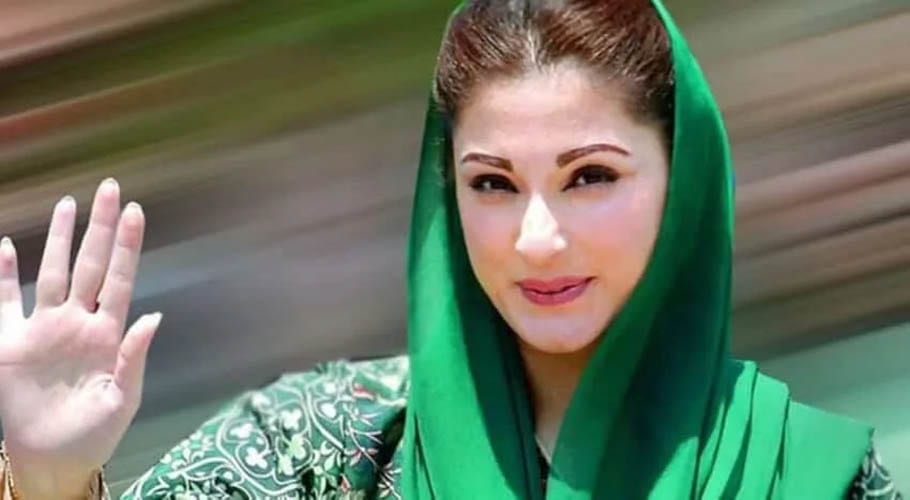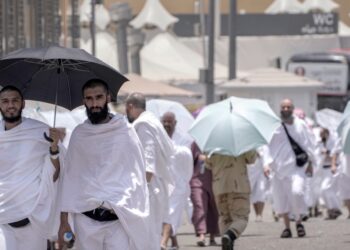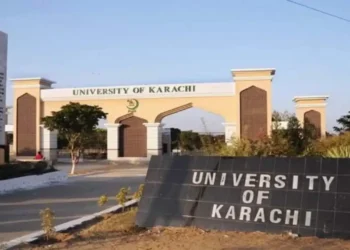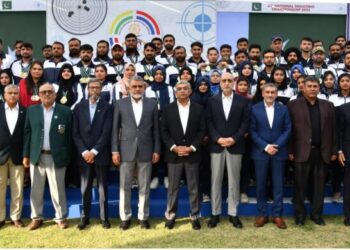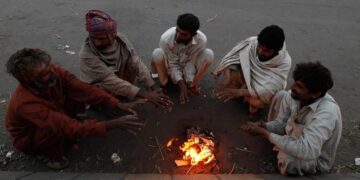![]() Follow Us on Google News
Follow Us on Google News
Maryam Nawaz Sharif also knew as Maryam Safdar is a Pakistani female politician and the daughter of former Prime Minister of Pakistan Nawaz Sharif.
Maryam was initially involved in the family’s philanthropic organizations. However, in 2012, she entered politics and was put in charge of the election campaign during the 2013 general election.
Early life and education
Maryam was born on 28 October 1973 in Lahore. She received her early education from the Convent of Jesus and Mary, Lahore. In 1992, she married Safdar Awan at the age of 19 and assumed her husband’s surname as Mariam Safdar.
Awan was serving as a captain in Pakistan Army at that time and was the security officer of Nawaz Sharif during the latter’s tenure as Prime Minister of Pakistan.
Education
She completed undergraduate studies at the University of Punjab, from where she received a master’s degree in literature.
In 2014, her degrees in M.A. (English Literature) and Ph.D. in Political Science were questioned by Lahore High Court. It was unclear whether her Ph.D. degree was earned or honorary.
In 2018, she only declared her master’s degree in English Literature while submitting records to the Election Commission of Pakistan.
Political career
Prior to entering politics, she remained involved in the family’s philanthropic organization and served as the chairperson of Sharif Trust, Sharif Medical City and Sharif Education Institutes. In November 2011, Shehbaz Sharif granted her permission to join politics after she expressed her intention to participate in politics.
In January 2012, on a social media post, she said, “I’m only assisting Nawaz Sharif at the moment. No intentions of getting into electoral or practical politics”.
During the general election in 2013, she was made in-charge of the Nawaz Sharif election campaign where she reportedly played a prominent role.
Chairperson of PM’s Youth Programme
In November 2013, Maryam was appointed as the chairperson of the Prime Minister’s Youth Programme.
However, her appointment was called into question by the Pakistan Tehreek-e-Insaf (PTI) which termed the appointment a case of nepotism and moved the Lahore High Court in October 2014.
On 12 November 2014, the Lahore High Court had ordered the federal government to remove her. As a result, Maryam resigned from the post of the chairperson-ship.
Panama Papers case
On 3 April 2016, the Panama Papers were leaked and Maryam was named in it along with her two brothers, Hussain Nawaz and Hassan Nawaz.
According to records uncovered by the International Consortium of Investigative Journalists (ICIJ), Maryam was described as the owner of the British Virgin Islands-based firms Nielsen Enterprises Limited and Nescoll Limited, and allegedly the owner of the properties in the United Kingdom owned jointly by her brothers.
Politically active in 2017
Maryam became politically active in 2017 after her father Nawaz Sharif was disqualified by the Supreme Court of Pakistan in relation to the Panama Papers case. She campaigned for her mother, Kulsoom Nawaz, during the by-elections in Constituency NA-120.
In June 2018, she was allocated a PML-N ticket to contest the 2018 general election from Constituency NA-127 (Lahore-V) and PP-173.
Corruption charges
In July, she was sentenced to 7 years’ jail on corruption charges in Avenfield reference filed by the National Accountability Bureau.
As a result, she was disqualified from contesting the election for 10 years. Following, PML-N nominated Ali Pervaiz and Malik Irfan Shafi Khokhar to contest the 2018 elections in constituency NA-127 and PP-173, respectively.
Chaudhry Sugar Mills corruption charges
On 8 August 2019, she was arrested by National Accountability Bureau Lahore over Chaudhry Sugar Mills corruption charges.
On 19 September, the Islamabad High Court announced its verdict on the bail petition and suspended the prison sentences against Maryam, her father and husband, and ordered their release on bail.
The court ordered them to pay Rs 500,000 each as surety bonds before their release. They were released from the Adiala jail the same day and were flown to Lahore.
Anti-government movements
The history of anti-government marches, some of which invited military intervention, is as old as Pakistan itself. Almost all the political and religious parties have used them as a tactic to pressure or topple governments in the past.
Prominent politicians of that time were Asghar Khan, Nawabzada Nasrullah Khan, Maulana Shah Ahmad Noorani, Prof. Ghafoor Ahmad and others. Such political alliances have been a force in throwing out Pakistani military rulers in the past.
Pakistan Democratic Movement
In September, an eight-hour-long PPP-hosted multi-party conference (MPC) was held, which was also addressed by the deposed prime minister Nawaz Sharif and former president Asif Ali Zardari through video link.
The country’s major opposition parties announced the launching of a three-phased anti-government movement under an “action plan” with countrywide public meetings, protest demonstrations and rallies in December and a “decisive long march” towards Islamabad in January 2021, under the banner of PDM.
The opposition parties also demanded the resignation of Prime Minister Imran Khan over alleged election rigging and the weak economy.
Is Maryam Nawaz up to the task?
If Maryam wants to emerge as a leader on the national stage, she will need to make unconventional alliances and speak out for those in the peripheries, who have borne the brunt of the establishment’s high-handedness for a lot longer than she and her family have.
It is quite clear that Imran Khan, another polarising and divisive world leader, is more interested in incarcerating political opponents than delivering for the people. But it was heartening to see that Maryam did not only call him out but also questioned the role of other key players in the hybrid regime.
The most honest and relevant statement in her recent press conference was her acknowledgment that it isn’t easy to resist undemocratic forces. She spoke about journalists, judges, politicians — all being put under pressure to compromise on principled positions.
In Pakistan, we have not historically had the robust democratic structure that countries like the US, UK and others had, but we have had our share of democratic movements, at various junctures, to push back against dictators and undemocratic forces.
Curiously, the burden to lead these movements has often fallen on female shoulders. From Fatima Jinnah fighting against Ayub Khan’s dictatorial regime to Benazir Bhutto standing firm against Ziaul Haq, it has been Pakistani women who have been the biggest symbols of resistance to authoritarianism. Is Maryam Nawaz up to the task?







